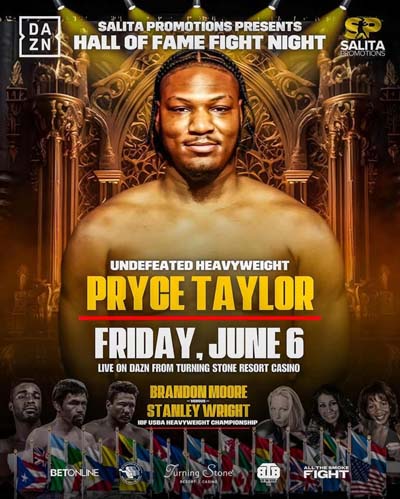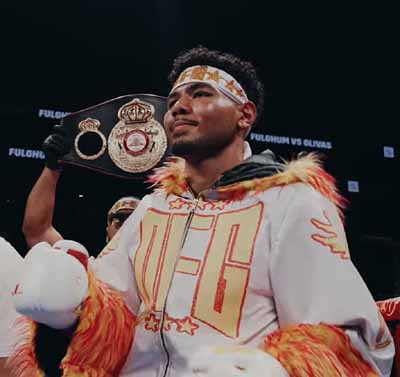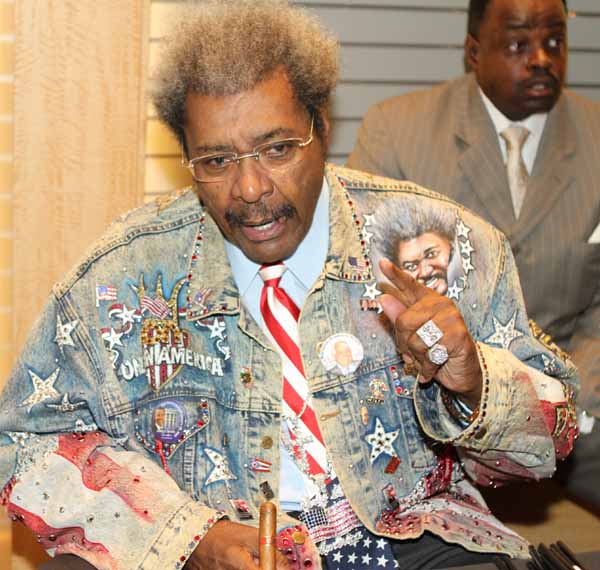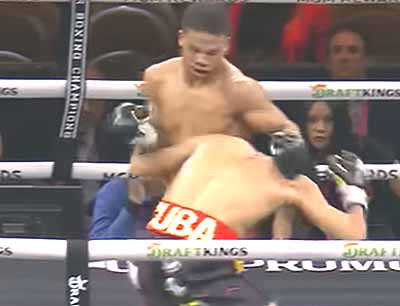(APR 24) If sports were months, boxing would be April, which T. S. Eliot labeled as the “cruelest month.” That’s because even the rare “feel good” tales in the sport have a hard edge to them. This one is about the Lampkins, father and son, out of a once great fight town, Portland, OR. The son, at 18, commenced a four year amateur career that took him to national prominence and, two weeks ago, at age 28, began a comeback with his debut bout as a professional boxer. The back story is of the father, one of the top ranked lightweight fighters of the 1970s, who stormed out of the clean, clear air of the Northwest and fought his way to the heat and humidity of Panama in a valiant attempt to unseat a champion who may have been the best lightweight of all time. And, of course, as with most boxing stories, this one is about the quest for fame and fortune in succeeding generations, unfulfilled promise, youthful missteps, and the irrefutable truth about a sport that usually pays off on dreams of fame at the rate of around two cents on each dollar of effort expended.
“I was born six years after my dad retired.” This is Ray Lampkin, the son, talking, on the phone, about his father, Ray “Lightning” Lampkin, from their hometown in Portland, last week. “I grew up in the gym. Even after my father retired, he continued to work out, and I went to the gym right along with him. Eventually, I started sparring with kids my size. At the same time, I was very involved in basketball and baseball during those sports’ seasons and, early on, I thought I might have a future on the diamond or on the court. But as I got older, boxing started to become more and more important in my life. Did my father and who he was have something to do with that? Sure. I had my first amateur bout when I was 18 and I fought, on a national level for four years, going to the Olympic trials, winning two national titles and several Golden Gloves medals. I had a four year record of 67-7 against the top amateurs in the country at the time, including boxers like Brandon Rios and Carney Bowman.
“Looking back now, it seems very clear that I didn’t handle the success I was having in the ring very well, especially outside the ropes. I got a lot a publicity in a (relatively) small town and, in all honesty, I started believing everything that was being written about me.” This, of course, is a common enough story in every sport; being overwhelmed by initial success at a young age. Many athletes work through the stage, Ray Lampkin wasn’t one of them. “I started picking up all the usual bad habits outside the gym and that affected the good habits I had developed inside the gym.” Lampkin’s decline wasn’t overnight, it never is, but in boxing, discipline, training and focus has to be constant. Not only did those “bad habits” have an affect on Lampkin’s boxing career, it affected his personal life as well. “Legal problems,” as Lampkin now euphemistically characterizes it, soon followed and what was once a promising amateur boxing career, that had every indication of professional success, suddenly, or so it must have seemed to the young boxer living it, turned into a life without boxing. It turned into a life that no longer included the constant discipline of an unforgiving sport, a life in which, instead of wining bouts and accolades in the ring, a once top amateur boxer was relegated to watching fighters he had competed, and won, against, perform, as professionals, on national fight cards on HBO and Showtime.

It took years of sitting and watching, but as Lampkin relates, “I finally said, ‘what am I doing, I beat these guys in the ring once, lets give it one more shot.’ ” That culminated on March 31 at the Emerald Queen Casino in Tacoma, WA, when Ray Lampkin won a four round unanimous decision over another pro debuter, Beau Hamilton. Lampkin calls it a “comeback” fight, but what he leaves unsaid is all the more informing. It was six full years since Ray Lampkin last stepped into a boxing ring for a competitive bout and that was an amateur fight. It was six years during which all those “bad habits” didn’t just disappear one magical “next morning.” It was six full years that a former elite athlete must have been haunted with doubts about whether the skills that carried Ray Lampkin to the heights of amateur boxing could be, somehow, summoned back. Are those doubts still there? It would be amazing if they weren’t, but Ray Lampkin looks ahead with almost the same amount of fervor and confidence he probably had at the height of his amateur success.
“Sure, you can say I lost six good years, but you also have to say that I didn’t go through six years worth of wear and tear in the professional ring. I feel better, smarter and more emotionally prepared to be a professional boxer than I would have been had I turned pro at 22. I was a very young 22, I won’t make the same mistakes I made six years ago. I’m older, that’s a fact, but I’m also a whole lot smarter. I think I’ve got, maybe, ten years to make it as a professional. For the first fight I was at 144. I’m working on getting down to 135. Lightweight is the right weight for me.”
He won’t be the first lightweight in the Lampkin family and if he ever gets to best the best lightweight in the Lampkin family this story will have an ending worthy of a Hollywood script. His father, also Ray Lampkin, had 41 professional bouts, in the 1970s, encompassing 289 rounds against the likes of Vilomar Fernandez, Estaban De Jesus (for the NABF title in Madison Square Garden) and Roberto Duran (for the WBA title in Panama). The senior Lampkin is not currently working with the son, but, not surprisingly, keeps a close eye on his progress. Not only a close eye, but a knowing, “been there down that” eye. “He may not have as much time as he thinks he has,” the father says of the son’s future in the ring. “He needs bouts and he needs them in a hurry, if only to find out, quickly, where he is as far his ring skills are concerned. He needs to get beyond the Portland/Vancouver area. When I was fighting this (Portland) was a good fight town, big time cards all year long, Andy Kendall, me, Denny Moyer, it was a very active. That’s no longer the case, Portland and the sport has changed in a lot of ways. While I’m not working with him, he knows I’m here and only want the best for him in and out of the ring.”
One four round bout doesn’t make a comeback and the younger Lampkin needs to look no farther than his father for evidence of what makes a quality boxing career. Will a 28 year old Ray Lampkin be able to achieve the success that seemed to be waiting for him six years ago? I think anyone who’s spent enough time in gyms and at ringside would make long odds on that happening. But a lot of those same ringside “experts” would, and, yes, probably should, be rooting for Ray Lampkin to make a success of turning around a life and a career that, at one point, had almost unlimited promise in a sport that doesn’t make a habit of turning out happy endings. The answer will come, as it always does in boxing, in the most basic of ways, inside the ropes. There’s a Ray Lampkin in Portland who already knows this and there’s a younger Ray Lampkin who will soon learn.
Published on WBAN. We cover women’s boxing and men’s boxing.



